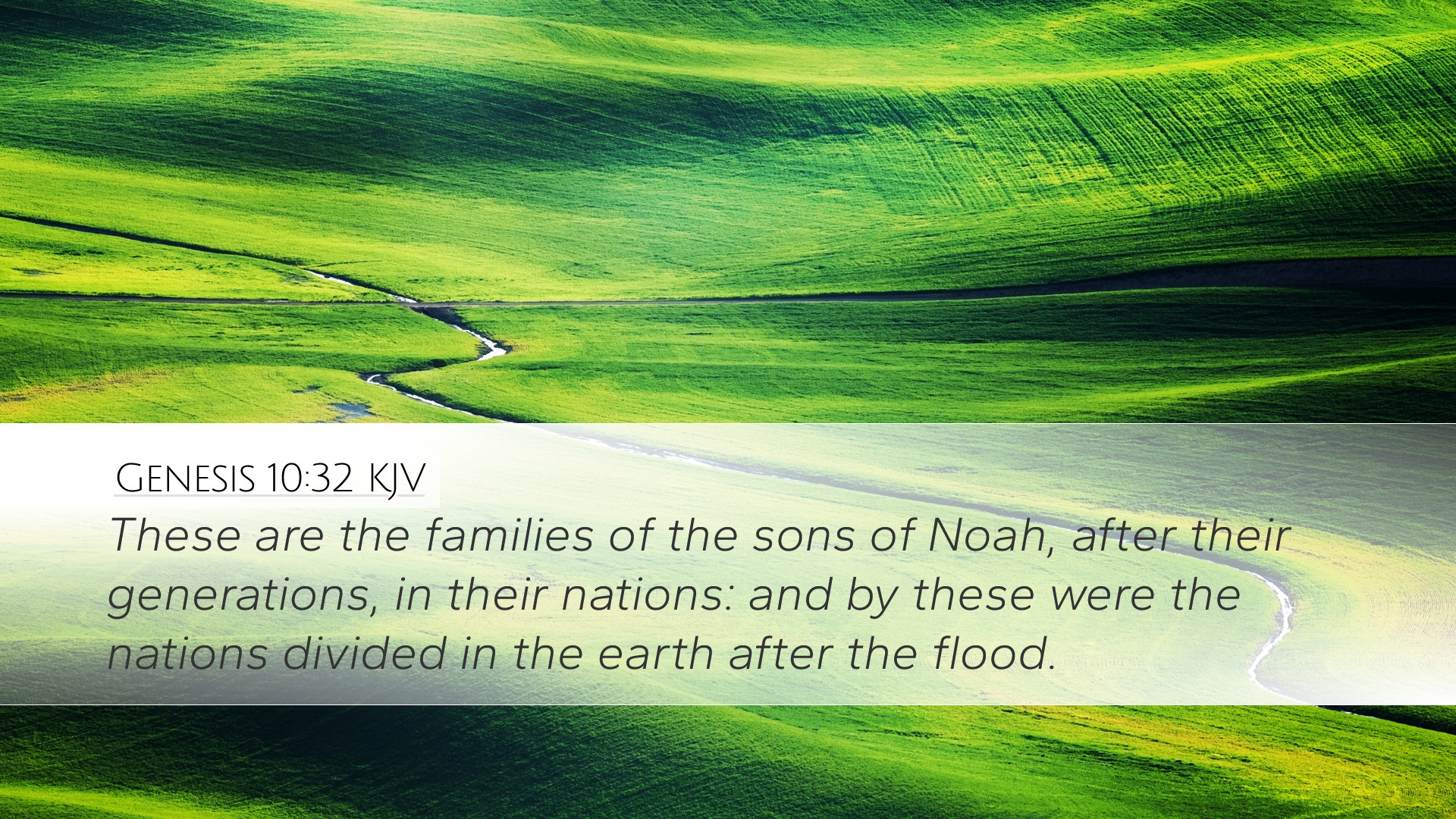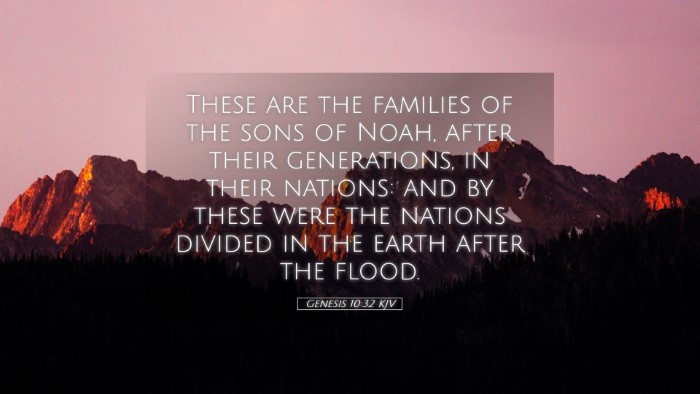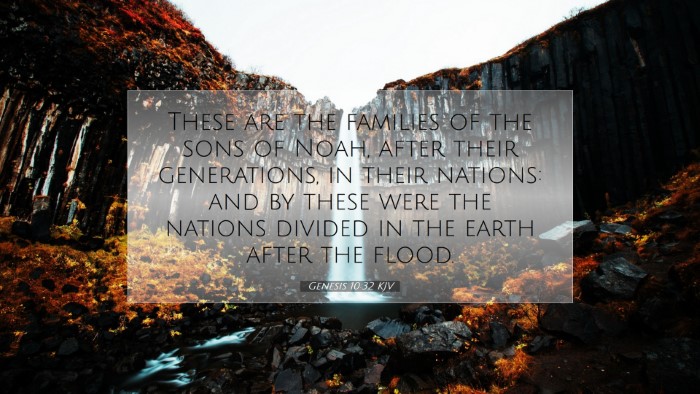Commentary on Genesis 10:32
Verse Overview
Genesis 10:32 states: "These are the families of the sons of Noah, after their generations, in their nations: and by these were the nations divided in the earth after the flood."
This verse concludes the genealogical account of Noah’s descendants, summarizing the distribution of nations that arose from the post-flood world. It serves as a thematic bridge linking the narrative of Noah's family to the broader history of humanity.
Contextual Insights
Historical Background
The chapter serves as a primeval history segment, charting the lineage of Noah’s sons—Shem, Ham, and Japheth—who repopulated the earth after the Flood. This section is significant as it reveals God's intention for humanity to multiply and fill the earth.
Theological Significance
The division of nations signifies God's sovereignty in human affairs and underscores the diverse cultural expressions of humanity stemming from a common ancestry. Commentary from Matthew Henry emphasizes that this diversity reflects the multiplicity of God’s creative genius and purpose. Each family represents distinct characteristics and contributions to human civilization.
Commentary Insights
Matthew Henry notes that this division also foreshadows the spiritual divisions among humanity, emphasizing the two ways in which people can relate to God: through faith and disobedience. The nations reflect not just geographical separation but also distinct spiritual paths.
Albert Barnes provides an analytical view, detailing how this genealogical list serves as a record of historical events and relationships among nations. Barnes points out that the names and families listed are not merely antiquities, but they have significant implications for understanding the boundaries and interactions across the ancient world.
Adam Clarke's commentary expands on the nature of this division, reflecting God’s involvement in establishing nations. Clarke posits that the enumeration serves a dual purpose: it is both a historical recounting and a theological statement on divine governance. Each nation, derived from Noah's sons, stands as a testament to God's providential care in guiding humanity’s development.
Analysis of Key Themes
- Divine Sovereignty: The division of nations post-flood illustrates God's authority over the earth. This ties back to the creation mandate given to Adam and continued through Noah's blessing to his sons.
- Cultural Diversity: The emergence of different nations signifies the variety in language, culture, and religion. It invites an understanding of how different peoples reflect the image of God in multi-faceted ways.
- Human Responsibility: The genealogical record places humans in a position of stewardship over the earth, highlighting the call to honor God through their cultural contributions and governance.
- Judgment and Mercy: The Flood was both a judgment on rampant sin and a means of preserving humanity through Noah. This duality continues in the narrative of humanity’s spread across the earth.
Practical Applications
This passage encourages believers to recognize the unity and diversity within the body of Christ. The global church reflects the various nations, highlighting the need for cooperation and mutual respect among diverse cultural expressions of faith.
The Role of the Church: As nations are established and cultures emerge, the church has the unique opportunity to engage these communities with the Gospel, embodying the call to make disciples of all nations (Matthew 28:19).
Stewardship of Creation: The passage invites us to reflect on our responsibility to steward our cultural identities in a way that honors God, encouraging a spirit of unity amid diversity.
Conclusion
Genesis 10:32 encapsulates a pivotal moment in biblical history where the descendants of Noah are outlined, and nations are formed. The insights from public domain commentaries like those of Matthew Henry, Albert Barnes, and Adam Clarke provide a rich tapestry of theological and practical reflections. This verse not only marks a historical account but also serves as a profound reminder of God's creative authority and the responsibilities of nations and individuals to reflect His character in cultural expressions.
Further Considerations
As you reflect on Genesis 10:32, consider how understanding our roots can inform our current practices. The message of unity and diversity holds critical significance for today, particularly in a world deeply divided by culture and beliefs. May this passage inspire believers to embrace both their unique heritages while also working toward a shared mission in Christ.


